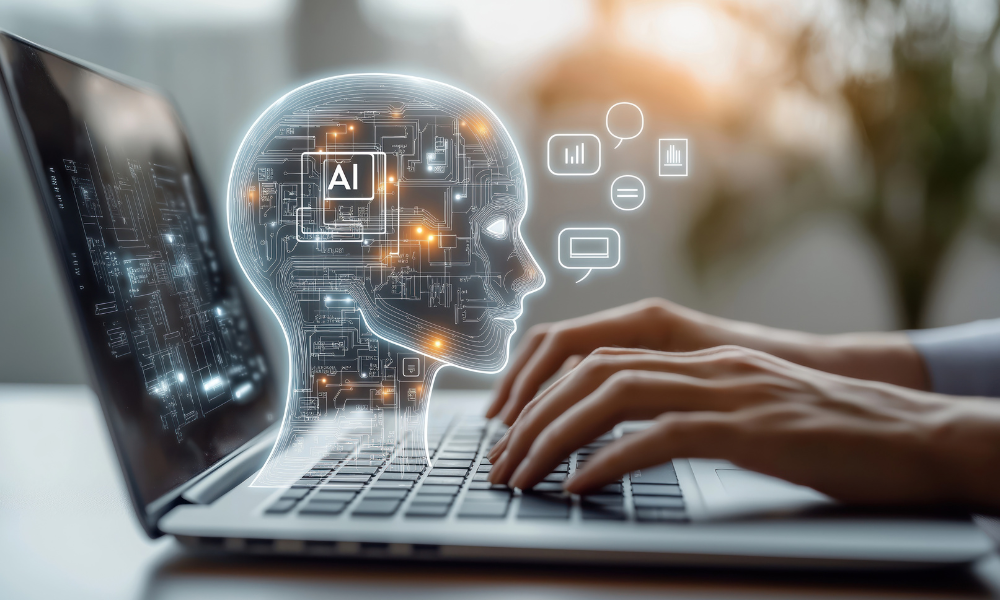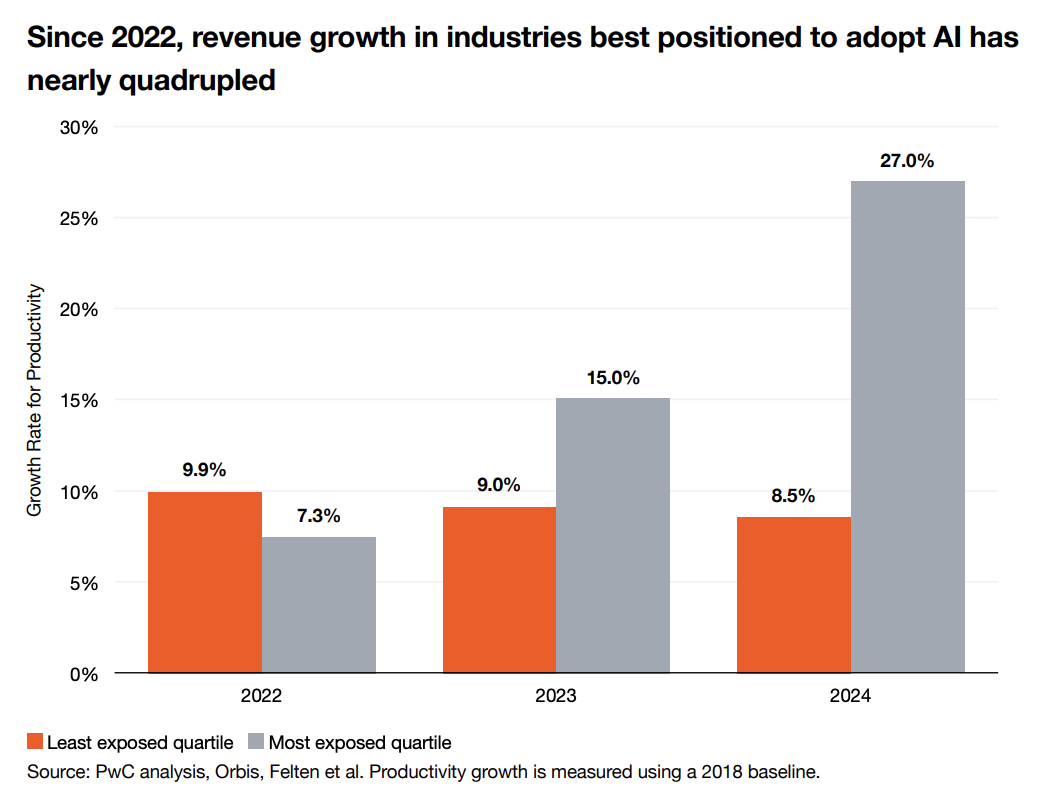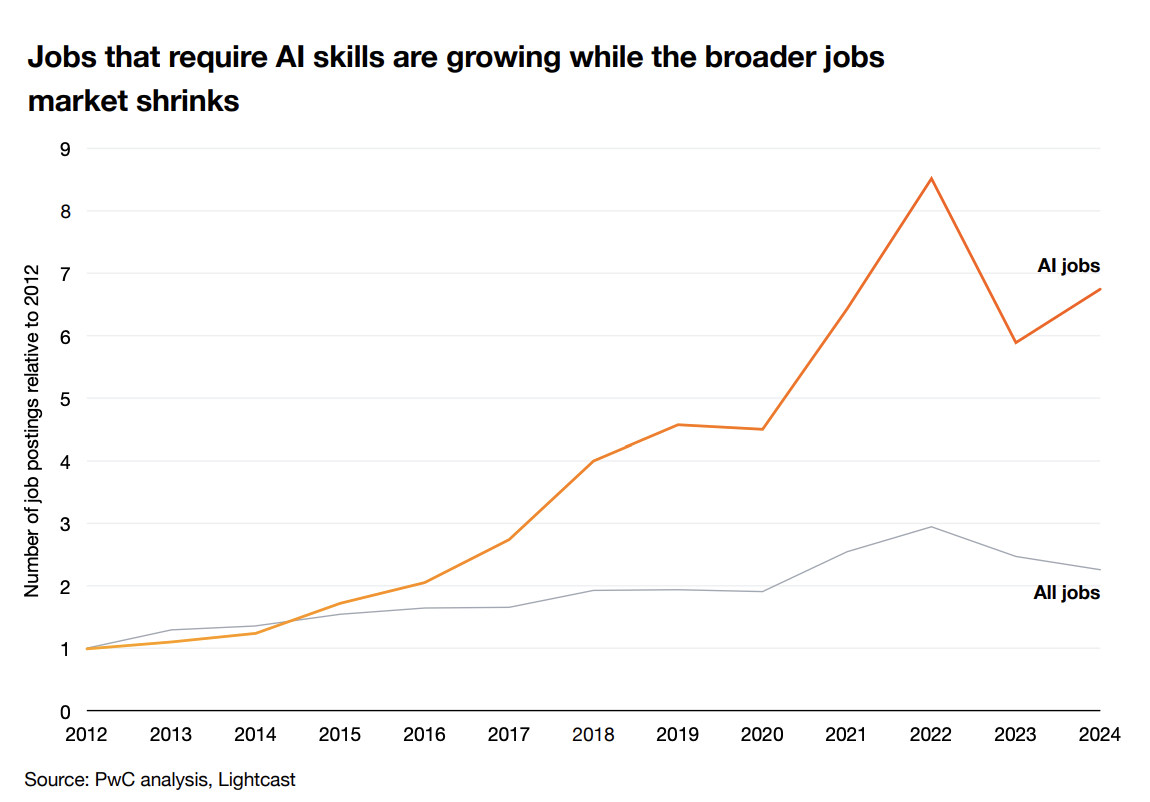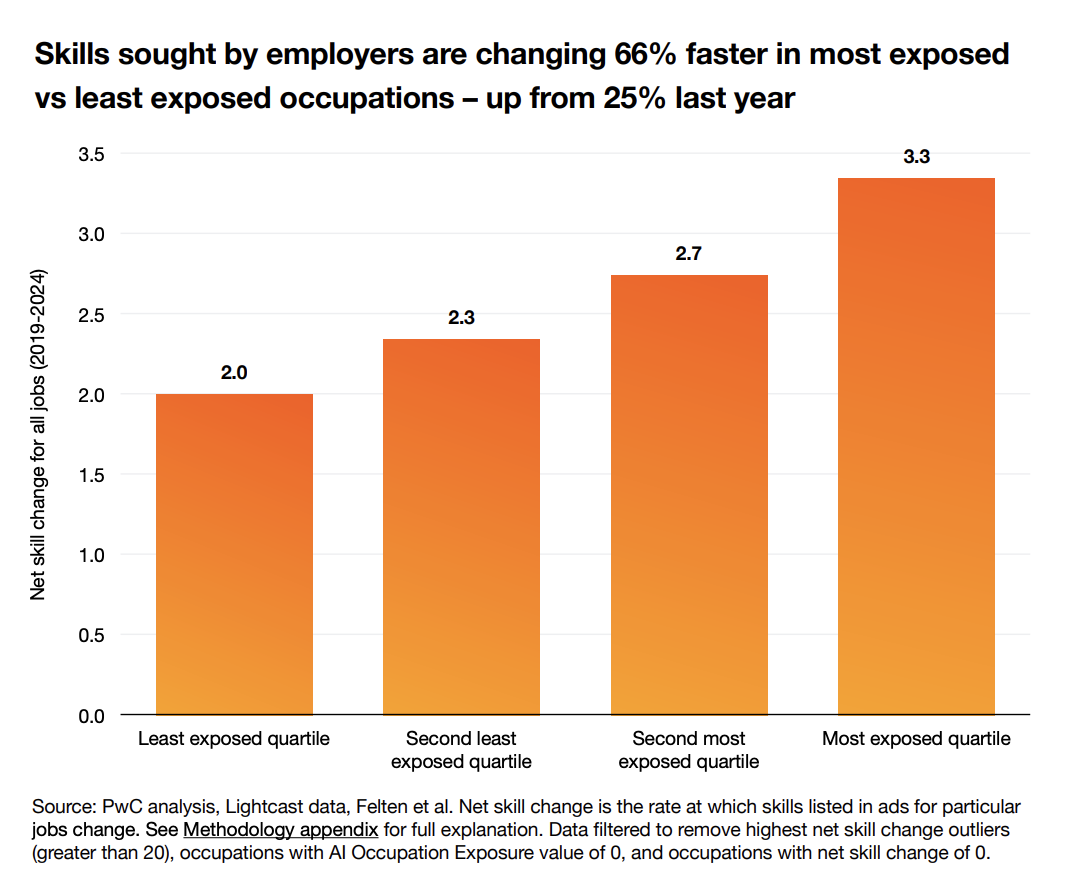
New report reveals AI's impact on revenue, wages, jobs

Industries most exposed to artificial intelligence are recording significant gains in productivity, according to a new report from PwC.
The 2025 Global AI Jobs Barometer revealed that employees are starting to deliver more value for their organisations since AI was introduced to them.
Revenue growth in industries that are best positioned to adopt AI has increased to 27%, nearly four times higher than the 7.3% recorded in 2022.
That's also three times the revenue-per-employee growth compared to the 8.5% seen in the industries least exposed to AI, the report noted.

"This research shows that the power of AI to deliver for businesses is already being realised. And we are only at the start of the transition," said Carol Stubbings, Global Chief Commercial Officer, PwC, in a statement.
But the report noted that it cannot prove with certainty that AI is the cause of the surge in productivity.
"But we do know that revenue growth in AI-exposed industries accelerated sharply in 2022, the year that the launch of ChatGPT 3.5 awakened the world to AI's power," the report read. "In the space of two years, industries most able to use AI have changed from productivity laggards to leaders, suggesting that investments in AI are paying off. AI's promise is proving to be real."
Meanwhile, the report found that AI is also delivering benefits on wages and jobs.
Jobs that require AI skills grew by 7.5% from last year, despite total job postings dropping 11.3%, according to the report. The average wage premium for jobs that require AI skills also reached 56%, up from 25% in the previous year.

The findings come despite previous predictions that AI will lead to job losses, with a report from the World Economic Forum saying that 41% of employers plan to downsize their workforce where AI can replicate people's work.
"In contrast to worries that AI could cause sharp reductions in the number of jobs available – this year's findings show jobs are growing in virtually every type of AI-exposed occupation, including highly automatable ones," said Joe Atkinson, Global Chief AI Officer, PwC, in a statement.
Stubbings called out that the narrative that AI is coming for jobs can create a lot of fear and anxiety for workers.
"We know that every time we have an industrial revolution, there are more jobs created than lost," she said in the report. "The challenge is that the skills workers need for the new jobs can be quite different."
According to the study, skills sought by employers in the most exposed industries are changing 66% faster than those least exposed to AI.

It cited the case in paralegal roles, where the more in-demand skills are now related to AI, critical thinking, and collaboration, as their functions on manually reviewing documents, summarising case law, and drafting standard legal documents get automated.
"So, the challenge we believe is not that there won't be jobs. It's that workers need to be prepared to take them," Stubbings said.